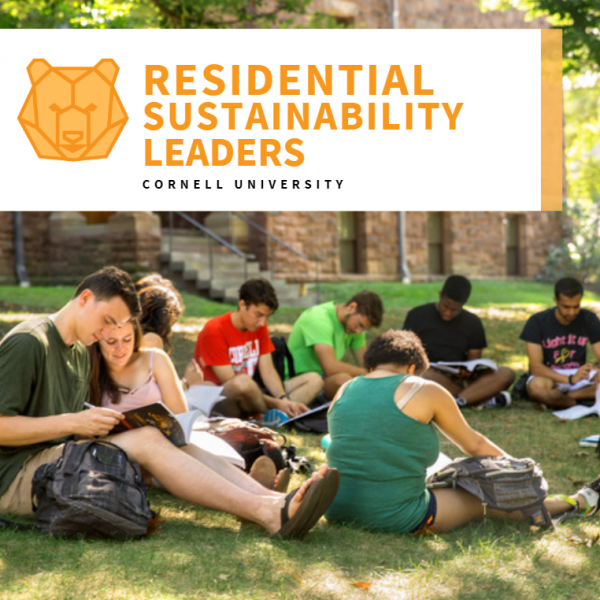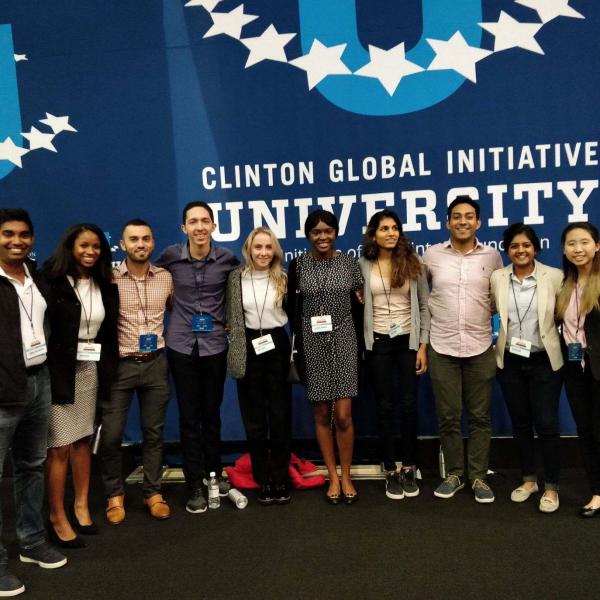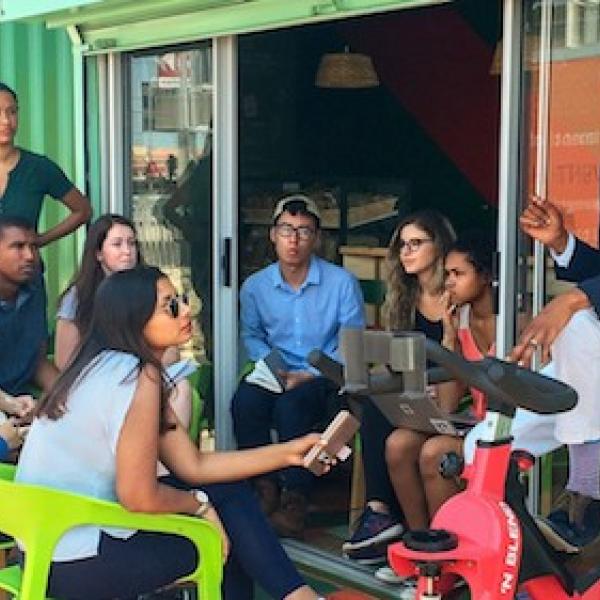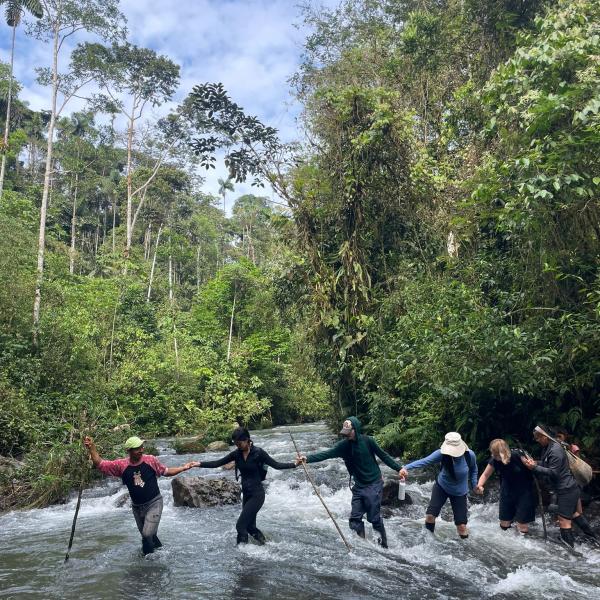Overview
The CALS Global Fellows Program supports CALS undergraduate students from any major in pursuit of challenging, professionally-focused summer internships and research placements that enhance and complement their career goals and academic progress, while enriching their undergraduate experience with diverse cultural and international immersion. Through key partnerships, the Global Fellows Program provides a platform for students to make positive and definable contributions to global organizations and communities.
Acceptance to the program is competitive and a limited number of students are selected each year.
Students who are accepted into the CALS Global Fellows Program will be required to complete 4 parts of the program:
- An in-person 7-week, Spring (session 2) pre-engagement 1 credit course ALS 2300, focusing on health and safety, cultural awareness, logistics and more.
- a continuous 7–8-week internship or research placement in an international setting
- and a 7-week, 1 credit post-engagement course in the first half of the Fall semester (ALS/GDEV 3105)
- Poster Symposium in Fall semester
Placement Opportunities
Placements: 1-2 (in-person)
Soils, Food, and Healthy Communities (SFHC) is a non-profit organization based in Ekwendeni, Malawi. SFHC works with communities across Northern and Central Malawi to use agroecological farming approaches to manage land sustainably, support nutritious and diverse diets, increase farmer-to-farmer research and knowledge sharing, encourage democratic leadership and gender equity, and build resilience against climate change.
As an intern, students will work to support SFHC’s programming to support agroecological approaches to improve food security, nutrition, social equity and sustainable land management in rural communities in the region.
Anticipated tasks may include assisting with data entry, report writing, and updating SFHC outreach materials. Interns may also support participatory farmer training, conduct field visits and data collection efforts.
Successful candidates should have a background in global development, agriculture, nutrition, global health, ecology and/or entomology and have international travel experience in rural areas of the Global South with interest/experience in agroecology/sustainable agriculture/rural development in the Global South. Skills and knowledge in participatory research, gender issues, digital communication tools are valuable.
- Desired Qualifications: Ideally, the student will have a background in ecology and/or entomology and have international travel experience in rural areas of the Global South with interest/experience in agroecology/sustainable agriculture in the Global South; participatory research; gender issues; child nutrition issues; entomology.
- Preferred Qualifications: The student should be someone who can work as part of a diverse participatory interdisciplinary team and work independently at times. They should be flexible, have a sense of humor, adventure, patience and respect for different cultures, knowledge and types of expertise, previous knowledge traveling in the Global South, knowledge of quantitative or qualitative research methods.
Suggested majors and/or professional interests: Environment & Sustainability, Global Development, Entomology, Agriculture Sciences, focus on food security, and rural development
About Malawi
Malawi, located in southeastern Africa is endowed with spectacular highlands and extensive lakes, it occupies a narrow, curving strip of land along the East African Rift Valley. Lake Nyasa, known in Malawi as Lake Malawi, accounts for more than one-fifth of the country’s total area. Mzuzu, the regional capital, is the only town of any size in North Malawi. Though still dwarfed by those to the south, it is growing rapidly now. Livingstonia Mission and Karonga and the Bandawe Misison near Chintheche are sites of historical interest and the lakeshore is dotted with interesting fishing villages as well as the larger, bustling port of Nkhata Bay.
We encourage you to apply to your first-choice program only. There is a space within the application to indicate if you have a second choice. If you are interested in two opportunities that are very different from one another and would prefer to write two statements of purpose, you may upload both to the same application in ONE document. Make sure they are clearly titled with the correct placement opportunity IF you are writing two statements. For reference, review examples of statements from past participants.
You may preview the application without starting an application by clicking on the “preview application” button next to the apply button. All applications contain the same questions and all information related to the program can be found within the experience page. There is no additional information within the application.






